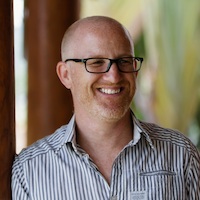Today we are in the peak of the technological era.
An incredible time.
A revolution of abundance: online everything, fast commerce and personalized convenience. What was once next week’s delivery is now yesterday’s memory.
More people are able to connect directly than ever before and even in the most remote and often marginalized areas, people have mobile devices. A fact that was underlined recently when Apple announced the most profitable quarter of any company ever, selling an average of 34,000 new iPhones every hour.
This need for immediacy brings with it an underlying anxiety.
The thought that something important might be missed if offline—the email for a closing deal, the important connection to a friend or colleague. There’s also a general consensus that productivity is intrinsically related to time. That the sense of achievement which comes with reaching the finishing line in business or personal endeavors, can only be measured by how many days or weeks it took to get there.
But is the time we take to achieve something really the best measure of our success?
If you were to sit with your financial advisor or have any meeting where the focus is predominantly about financial return, then there would be a resounding yes. But how fast we cross the line is only one measure. Activity along the way and the authenticity with which it was crossed, are also important.
Last year I was having coffee with a friend (a successful entrepreneur) and I asked him how he defines success. He responded by saying, “It’s when everyone thinks you have made it and you are thinking you’ve only just begun.”
This alludes to the need for a big vision coupled with a sense of being grounded in where you are at today. A vision that is not necessarily fixed but instead shifts with your own micro achievements and a steady, determined pace, focused on daily activities.
On the contrary, when all our energy goes into reaching the destination quickly, we lose sight of the most important part, the process. When we take focus away from the process, it’s harder to change direction when it’s really needed and wenoften end up doing more, to achieve less.
As the tortoise said to the hare, “Don’t brag about your lightning pace, for slow and steady wins the race.”
For the past seven months I have been living northern of Thailand and traveling back to Singapore every few weeks for business. The stark contrast between the two environments could not be more confronting. Pai, a small chilled-out town in the hills of Thailand, where people say “see you tomorrow’” and turn up next week versus Singapore, a city-state that prides itself on modernization, efficiency and economic leadership.
I have always been motivated by a sense of achievement—this contrast in culture has provided the ideal lesson in striving without rushing. The delicate balance between determination in completing a project and appreciation of the activities that led there.
On a recent trip I was reading an article featuring a quote by Isocrates, which I think best sums it up:
“It is more important to know where you are going than to get there quickly. Do not mistake activity for achievement. Remember that there is nothing stable in human affairs, therefore avoid undue elation in prosperity or undue depression in adversity.” ~ Isocrates
Relephant:
The Art of Slowing Down (Without Feeling Guilty)
Author: Matt Rickard
Apprentice Editor: Kendra Hackett/ Editor: Ashleigh Hitchocck
Photo: courtesy of the author









Read 0 comments and reply